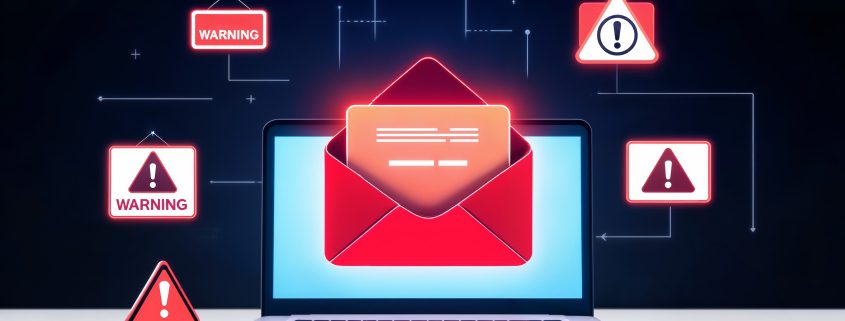Types of Email Attacks and How to Protect Your Business in Kenya
Types of Email Attacks and How to Protect Your Business
Types of Email Attacks & How to Prevent Them | Web Register Solutions
Email is one of the most important tools in business communication. But while it helps us stay connected, it’s also a top target for cybercriminals. Every day, companies in Kenya and around the world face serious threats like phishing, malware, and email spoofing.
At Web Register Solutions — Kenya’s trusted provider of email hosting services, domain protection, and cybersecurity solutions — we help you understand and defend against these threats.
In this blog, we explore common types of email attacks and the best practices to protect your business email.
1. Phishing Attacks
What it is:
Phishing emails trick you into clicking fake links or sharing sensitive data like passwords, credit card numbers, or login details. These emails often impersonate banks, government agencies, or known brands.
How to protect yourself:
-
Verify email addresses, especially unexpected messages.
-
Train your staff on how to detect phishing emails.
-
Enable SPF, DKIM, and DMARC on your domain.
-
Use professional email hosting in Kenya with built-in security filters.
2. Spear Phishing
What it is:
This is a more targeted form of phishing. Cybercriminals study their victims — like a company’s CEO or accountant — and craft highly convincing messages to deceive them.
Solution:
-
Always confirm unusual requests via phone or in person.
-
Use multi-factor authentication (MFA).
-
Provide security awareness training for your team.
3. Business Email Compromise (BEC)
What it is:
Also called CEO fraud, BEC attacks involve impersonating an executive or supplier to request urgent payments or data transfers.
Solution:
-
Set up financial approval procedures.
-
Monitor logins for suspicious behavior.
-
Choose secure business email hosting services in Kenya that detect anomalies.
4. Malware & Ransomware via Email
What it is:
Malicious links or attachments can install viruses or lock your files (ransomware), demanding a payment to restore access.
Solution:
-
Avoid opening unknown attachments.
-
Keep antivirus software and servers updated.
-
Regularly back up business data to the cloud or external storage.
5. Email Spoofing
What it is:
In spoofing attacks, the attacker fakes the sender’s email address to appear as someone trusted.
Solution:
-
Use SPF, DKIM, and DMARC records for email verification.
-
Educate employees on suspicious sender behavior.
-
Host emails with providers that offer domain-level security.
6. Spam & Junk Emails
What it is:
Not all spam is malicious, but it clutters inboxes and may carry harmful links or scam content.
Solution:
-
Use spam filters and blacklists.
-
Don’t click “unsubscribe” on spam — it may confirm your address to attackers.
-
Report spam to your IT or email provider.
Protect Your Business with Web Register Solutions
Securing your email is no longer optional — it’s a must-have for every Kenyan business. From business email hosting and custom domain registration to website security, Web Register Solutions offers everything you need to stay protected online.
Top 10 Ways to Secure Your Business Email:
-
Implement SPF, DKIM, and DMARC.
-
Use multi-factor authentication (MFA).
-
Avoid using free/public Wi-Fi for accessing email.
-
Regularly update your passwords.
-
Backup your data frequently.
-
Educate employees about social engineering.
-
Use advanced spam and virus filters.
-
Monitor email logs and traffic.
-
Block suspicious IP addresses.
-
Partner with a reliable email hosting provider like Web Register Solutions.










Leave a Reply
Want to join the discussion?Feel free to contribute!